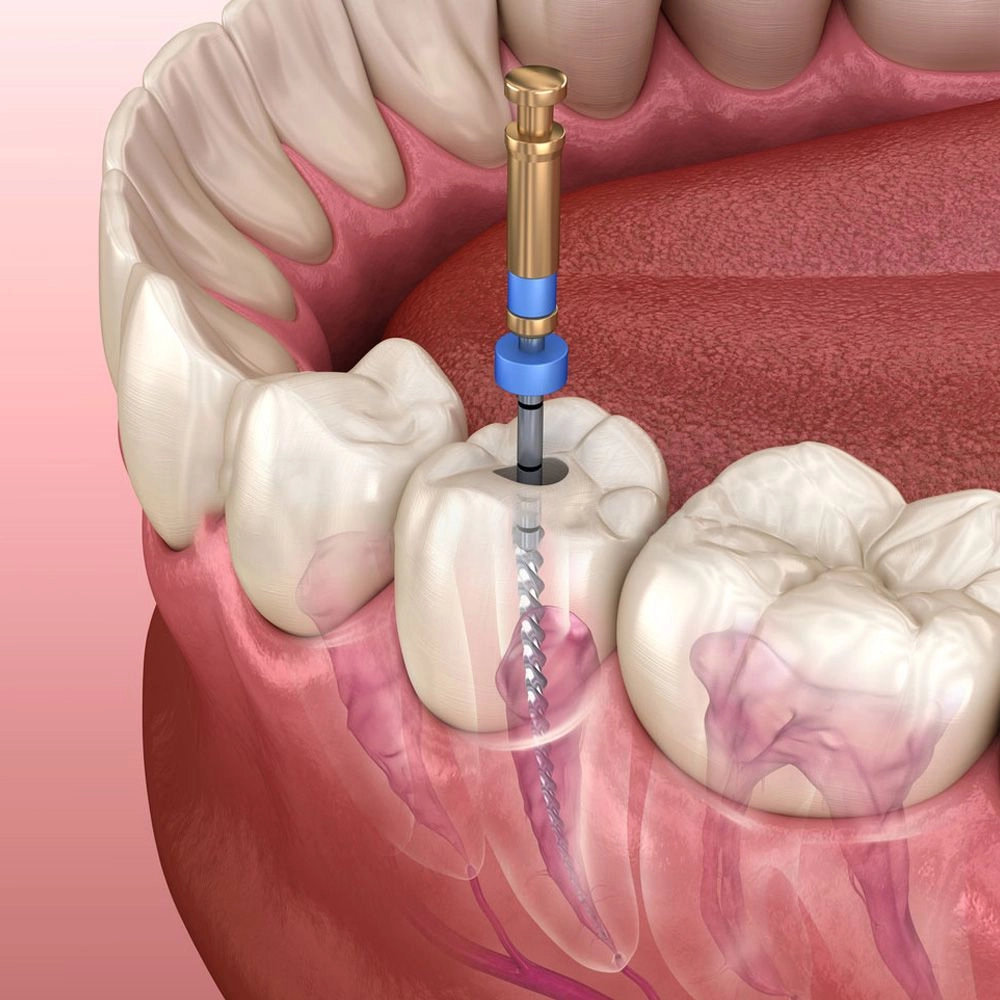The pulp is a soft tissue that contains blood vessels, nerves, and connective tissue, and it is essential for the development and health of the tooth. When the pulp becomes infected or inflamed, typically as a result of deep decay or a traumatic injury, it can cause severe pain, swelling, and sensitivity to temperature.
During a root canal procedure, the dentist will numb the area around the affected tooth and make a small opening in the top of the tooth to access the pulp chamber. The infected or inflamed pulp tissue is then carefully removed using specialized tools, and the inside of the tooth is cleaned and disinfected to prevent further infection.
Once the pulp tissue has been removed, the dentist will fill the empty space with a rubber-like material called gutta-percha and seal the tooth with a filling or crown to protect it from further damage.
Root canal treatment is typically performed over the course of one or two appointments, depending on the complexity of the case, and is generally well-tolerated with the use of local anesthesia. It is a highly effective way to save a damaged or diseased tooth and can help to alleviate pain and restore function to the affected area.
Overall, root canal treatment is a safe and effective way to treat a range of dental issues and can help to preserve a person's overall oral health and well-being. It is always recommended to consult with a dentist to determine the best course of treatment for any dental concerns.
Root Canal Treatment





